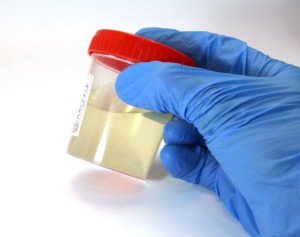
It’s scary to see cloudy urine coming out of you.
If you’ve been noticing that your urine is cloudy, this is not something you should shrug off.
But medicine.net and mayoclinic.com do not list cancer as a possible cause. But keep reading…
Cloudy urine can be a sign of urinary tract infection. If your excrement smells really bad, and especially if you have fever and chills, there’s a good chance it’s a UTI.
If the only symptom is the murky excrement, you should still see a doctor.
This is because it can mean kidney stones or infection, gonorrhea or a yeast infection in the vagina.
Another cause of cloudy urine is a buildup of red or white blood cells, phosphates or fat.
A common cause of cloudy urine is a buildup of sediment in the fluid—sediment in the form of tiny crystals.
This situation is harmless. And guess what: cervical fluid can mix with your excrement and make it cloudy.
Additional causes of cloudy urine
(no particular order)
Diabetes
Enterovesicular Fistula
Schistosomiasis
Enlarged Prostate
Certain Prostate Problem Treatments
And according to the Mt. Sinai Medical Center site for urology, another cause is prostate cancer. But this is not a direct cause. Nor is it a common cause.
“Prostate cancer doesn’t typically cause cloudy or murky urine,” says Mark Levandovsky, MD, Founder and Medical Director of Preventive Medicine and Cancer Care. Dr. Levandovsky is a board certified internist and oncologist/hematologist in practice for 20 years.
Dr. Levandovsky explains, “The most common cause of such a urine would be obstruction (from prostate enlargement due to prostate cancer), which in turn can cause bleeding and/or urinary tract infection, causing a change in urine quality.”
What You See
One thing you should be very aware of is that poor or dim lighting in a bathroom could taint your view of your urine and even how it appears in the toilet water.
Even if the lighting is good, your positioning on the toilet could hamper your view by creating a shadow. It’s just an awkward way to view things.
To be extra sure about what you think you may be observing, relieve yourself in a clear plastic cup, then examine its contents.
Slowly poor the contents into a clean sink of clean water. Examine the fluid as it pours and as it enters the water.
When in doubt, always consult with a physician — and this should be a urologist rather than a primary care doctor.



























